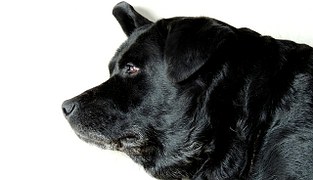Controlled Weight Loss Programs for Obese Dogs

The objective of this study was to to determine the outcome of a controlled weight loss programs for obese dogs, and to determine the factors associated with successful completion.
This was a cohort study of 13 obese dogs attending a referral weight management clinic. Dogs were studied during their period of weight loss, and cases classified according to outcome as “completed” (reached target weight), “euthanized” (was euthanized before reaching target weight), or “stopped prematurely” (program stopped early for other reasons). Factors associated with successful completion were assessed using simple and multiple logistic regression.
87 of the 143 dogs (61%) completed their weight loss program, 11 [8%] died or were euthanized, and the remaining 45 [32%] stopped prematurely. Reasons for dogs stopping prematurely included inability to contact owner, refusal to comply with weight management advice, or development of another illness. Successful weight loss was positively associated with a faster rate (P < .001), a longer duration (P < .001), and feeding a dried weight management diet (P = .010), but negatively associated with starting body fat (P < .001), and use of dirlotapide (P = .0046).
Just over half of all obese dogs on a controlled weight loss program reach their target weight. Future studies should better clarify reasons for success in individual cases, and also the role of factors such as activity and behavioral modification.
Click here to be directed to the study in the Journal of Veterinary Internal Medicine.

